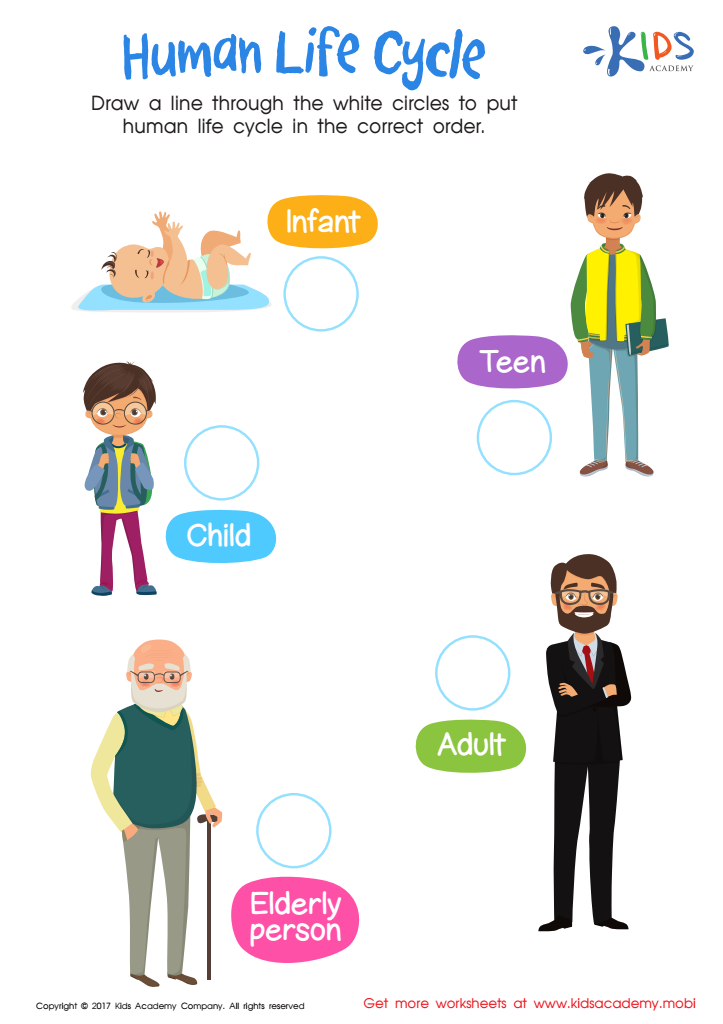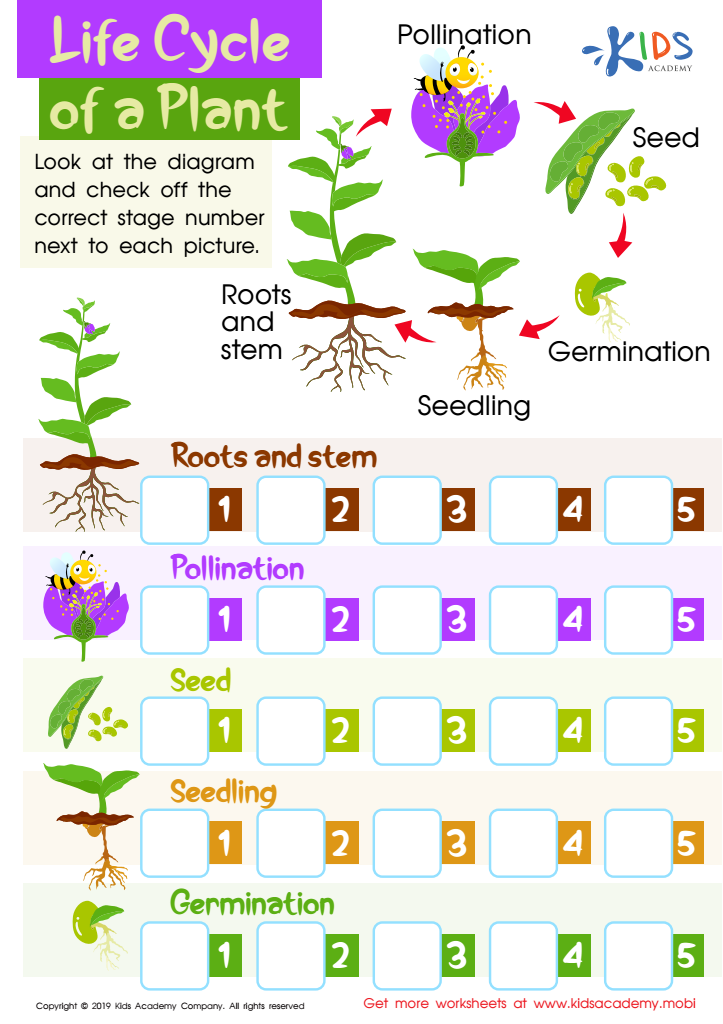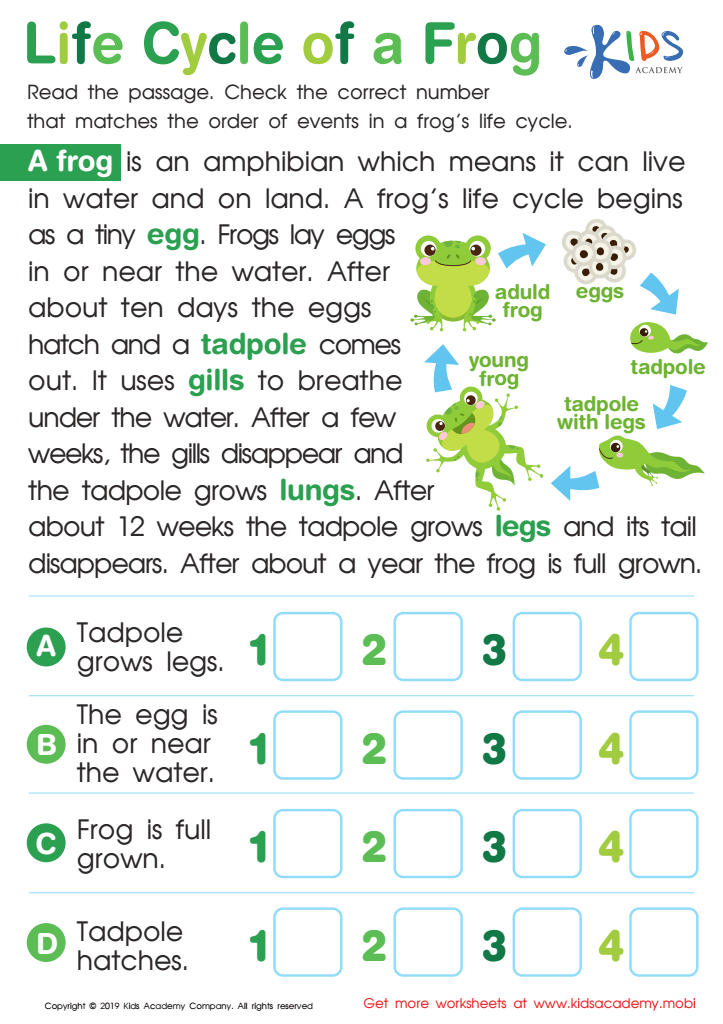Sequencing skills improvement Worksheets for Ages 5-9
3 filtered results
-
From - To
Enhance your child's sequencing skills with our engaging worksheets designed for ages 5-9! These worksheets focus on developing critical thinking and comprehension abilities by guiding children through fun activities that encourage them to arrange events in logical order. Our easy-to-follow worksheets feature colorful illustrations, relatable scenarios, and age-appropriate tasks that make learning enjoyable. Ideal for home or classroom use, these activities help strengthen your child's understanding of sequencing concepts, improving their storytelling and problem-solving skills. Foster creativity and a love for learning with our Sequencing Skills Improvement Worksheets today, and watch your child's confidence and capabilities grow!


Human Life Cycle Worksheet


Life Cycle of a Plant Worksheet


Life Cycle of a Frog Worksheet
Sequencing skills are crucial for children ages 5-9, and parents and teachers should prioritize their development for several reasons. First, sequencing helps children understand the order of events, which is foundational for reading comprehension. As they follow stories, a grasp of sequences allows them to form a coherent narrative in their minds, enhancing critical thinking and comprehension.
Moreover, improved sequencing skills significantly aid in math concepts, such as following multi-step processes and solving problems. Being able to break down tasks into sequential steps empowers children to approach challenges methodically, fostering independence and confidence in their abilities.
Socially and emotionally, children who master sequencing are better equipped to interpret interactions and predict outcomes. This can enhance their communication skills, as they narrate experiences or explain ideas chronologically, fostering engagement with peers.
Finally, sequencing lays the groundwork for future learning. As academic content becomes more complex, strong sequencing skills will enable students to tackle more advanced concepts in various subjects efficiently. By nurturing these skills through engaging activities, both parents and teachers can contribute to a child's overall academic success and lifelong learning habits, ultimately setting them on a path to achievement.
 Assign to My Students
Assign to My Students




















